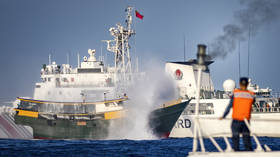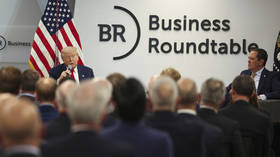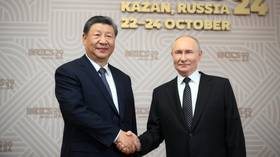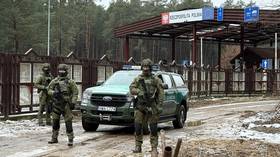India supports ‘development’ over ‘expansionism’ – Modi
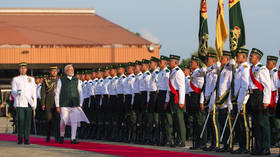
India supports a policy of “development” and not “expansionism,” Prime Minister Narendra Modi said during a visit to Brunei, which borders the South China Sea and Malaysia. His comments have been interpreted as a dig at China, given the tense relationship between the two South Asian nations.
Modi’s trip to oil-rich Brunei was the first ever bilateral visit by an Indian prime minister. He held wide-ranging talks with the country’s leader Sultan Haji Hassanal Bolkiah before heading to Singapore. Both Southeast Asian nations are pivotal to New Delhi’s ‘Act East’ policy, Indian Foreign Minister Subrahmanyam Jaishankar said on Thursday.
At a banquet hosted by the King of Brunei, Modi spoke about the South China Sea maritime dispute between Beijing, Taiwan, the Philippines, Malaysia, Vietnam, and Brunei. He said India supports “freedom of navigation and overflight under international laws,” referring to the United Nations Convention on the Law of the Sea (UNCLOS) of 1982.
“We agree that a code of conduct should be finalized in this region. We support the policy of development, and not expansionism,” Modi said, without referring to any particular country.
Negotiations over a “code of conduct” in the South China Sea between the Association of Southeast Asian Nations (ASEAN) and China have been ongoing for decades.
A joint statement issued after Modi’s meeting with the Brunei sultan noted that both leaders had reiterated their commitment to “maintaining and promoting peace, stability, maritime safety and security,” as well as freedom of navigation and overflight in line with international law. Despite having overlapping claims in the South China Sea, Brunei has maintained a long-standing non-confrontational approach to the maritime dispute.
Later, in Singapore, Modi and his counterpart Lawrence Wong reaffirmed the importance of maintaining and “promoting peace, security, stability, safety and freedom of navigation in and overflight above the South China Sea.”
Earlier this year, amid tensions between China and the Philippines, New Delhi said it opposed unilateral actions seeking to change the status quo by force in the South China Sea region.
Ties between the two South Asian countries have been strained ever since a skirmish at a disputed border region in the Ladakh Valley in June 2020, resulting in the deaths of soldiers on both sides. New Delhi has rejected China’s claims to the Arunachal Pradesh region (which Beijing has named ‘Zangnan’), and has expressed concern over China’s increasing forays into the Indian Ocean Region (IOR).
At the same time, Indian Foreign Minister Subrahmanyam Jaishankar has suggested that New Delhi must “welcome competition” and have “more confidence” in the face of growing Chinese influence in South Asia. He has also said that ironing out disputes with both neighbors – China and Pakistan – would be among the key imperatives during Modi’s third term as prime minister.
Despite continuing friction, China was India’s top trading partner in the past fiscal year, with bilateral trade reaching $118.4 billion.
